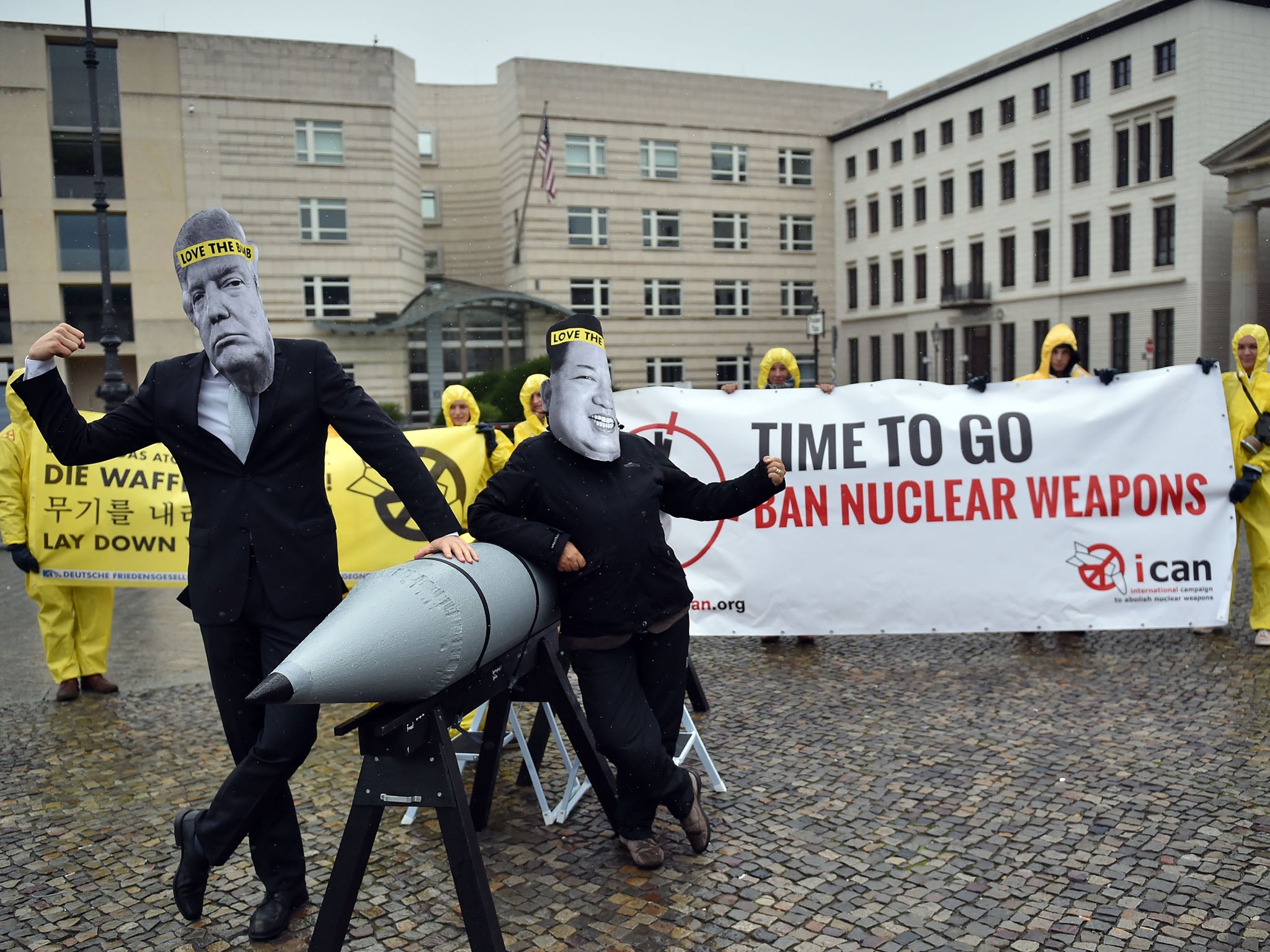Today’s Nobel Peace Prize winners were not impressed with Theresa May’s approach to nuclear weapons
Time and again British ministers say that they are in favour of multilateral disarmament, yet when presented with an opportunity to show leadership they shamefully boycotted the talks


It’s not every day you can say that your government has been actively undermining the work of Nobel Peace Prize winners, but today is that kind of day.
After months of frightening threats from the USA and North Korea, and with the risk of nuclear war greater now than it has been in many years, the Nobel Prize Committee has awarded the Peace Prize to the International Campaign to Abolish Nuclear Weapons (Ican).
Their amazing work, described by the Nobel Committee as “a driving force in prevailing upon the world’s nations to pledge to … eliminate nuclear weapons,” led to a legally binding nuclear weapons ban treaty at the UN supported by the majority of the world’s nations. It was a groundbreaking achievement, yet it was opposed by our own Government.

I was at the UN in June as more than 120 countries gathered to agree the ban, but Theresa May didn’t even bother to turn up and the UK sent no official representative. The ban has now been set in stone and is accruing signatures from countries across the world – yet Britain remains resolute in refusing to engage with the process.
In working towards a ban, the International Campaign to Abolish Nuclear Weapons – a coalition of peace campaigns united across 90 countries – is following a well-trodden path. Chemical and biological weapons, cluster munitions and landmines were all banned before full-scale decommissioning and disarmament began. History has taught us that stigmatising the weapons themselves, rather than the obvious hypocrisy of nuclear states lecturing non-nuclear nations, is the most effective way to prevent their proliferation.
Time and again British ministers say that they are in favour of multilateral disarmament, yet when presented with an opportunity to show leadership they shamefully boycotted the talks. In a joint statement with the US and France, British diplomats said that the ban “is incompatible with the policy of nuclear deterrence, which has been essential to keeping the peace in Europe and North Asia for over 70 years”. Their reason for not backing the ban, it seems, is that it threatens to actually get rid of nuclear weapons.
Part of the reason Britain opposes this ban is because we can’t shake off our imperial past. Ministers see possession of weapons of mass destruction as some sort of bargaining chip to keep us at the top table of world affairs. But our opposition to banning nukes puts us in opposition to most nations, and weakens our credibility as a peace maker.
The Nobel Committee itself was clear on this very issue today, saying that “the next steps must involve the nuclear-armed states. This year’s Peace Prize is therefore also a call upon these states to initiate serious negotiations with a view to the gradual, balanced and carefully monitored elimination of the almost 15,000 nuclear weapons in the world.”
The costs and risks of maintaining our nuclear weapons system cannot be overstated. The new Trident weapons system will cost well over £100bn – money that could be spent on our cash-strapped schools and hospitals or the best possible safety equipment for our troops. Their very presence on these islands – and the transport of nuclear warheads on our roads – presents not only a target for terrorism but a continued risk of accidents linked to human error or technical failure.

The UK should seize the awarding of the Nobel Prize as a moment to change our tune, and back the ban. Only genuine disarmament can end the proliferation cycle, deter new nuclear development and create the conditions to move towards what President Barack Obama described in 2009 as the “peace and security of a world without nuclear weapons”. The alternative is spiralling nuclear proliferation, massively increased danger and the ratcheting up of tensions between nuclear weapons states. For all our futures, Theresa May must sign the treaty, scrap Trident replacement and make these monstrous weapons history.
Caroline Lucas is co-leader of the Green Party of England and Wales
Join our commenting forum
Join thought-provoking conversations, follow other Independent readers and see their replies
Comments
Bookmark popover
Removed from bookmarks